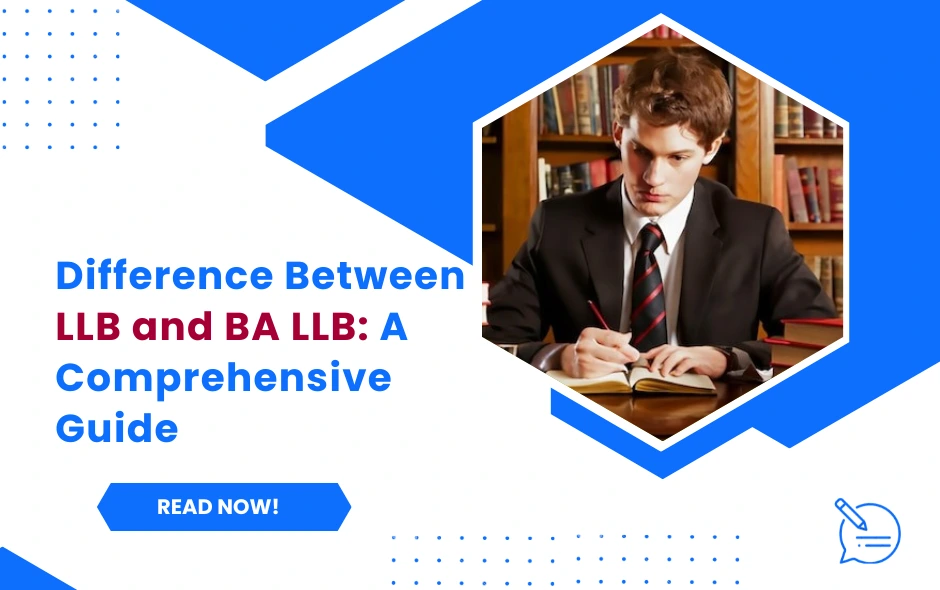Journey to Jurisprudence: An In-depth Look at the Bachelor of Law Program
Explore your legal aspirations with Bachelor of Law courses at CGC Jhanjeri. Find comprehensive admission details and embark on your journey to a successful legal career. Join us today.
LLB, or Bachelor of Law, is a three- or five-year law degree that can be pursued after high school matriculation and 10+2, respectively. A Bachelor of Law is a foundational law course that teaches students legal procedures. The best LLB colleges in Chandigarh help students develop a logical, analytical, and critical understanding of legal affairs and teach them how to apply these skills to resolve social and legal problems in the community.
CGC Jhanjeri is authorized by the Bar Council of India (BCI) and offers the LLB program to its students. The Bar Council of India (BCI) administers the All India Bar Examination (AIBE) for students who wish to practice law in India. This article will discuss every aspect of the LLB program, including the LLB eligibility criteria, LLB admission fees, and scope after LLB.
What does LLB Stand for?
Bachelor of Legislative Law, or Bachelor of Law, is the complete abbreviation for LLB. LLB is derived from the Latin term legum Baccalaureus, which refers to a law degree program at the undergraduate level. LLB eligibility criteria: The three-year LLB is open to candidates with a bachelor's degree in any field, while the five-year LLB is an integrated law program that can be pursued after 10+2.
LLB Fee Framework
LLB fees largely depend on the top LLB colleges in Punjab where students enroll. Before enrolling in the LLB program, students must research the institution's Bachelor of Laws or LLB tuition fees where they wish to register. The average LLB fees ranges between Rs. 5,000 and Rs. 100,000.
Why Obtain a Bachelor of Law (LLB)?
LLB (Bachelor of Legislative Law) courses empower students to combine their law studies with business, accounting, law, and non-legal degrees by providing a firm foundation. Law school graduates can enter various disciplines, including media and law, academia, commerce and industry, social work, and politics. The LLB program equips students with the knowledge and abilities gained through the study of law, enabling them to analyze both aspects of complex situations and devise practical solutions based on sound reasoning and critical thinking. Before enrolling in the LLB program, individuals wishing to pursue a legal career after graduation should know all the course specifics.
LLB eligibility criteria
The LLB eligibility criteria depend on various factors, including college, course, type of institution, and 1+2 or Bachelor's-level grades. Before applying for the LLB course, applicants must know the LLB eligibility requirements; otherwise, their candidacy may be nullified at any stage of the admissions process. Before enrolling in the LLB program, students should know all LLB course details, including the admissions process, tuition, and post-graduation career options. After graduation, students who wish to pursue law as a career can pursue an LLB.
For admission to three-year LLB programs, students must hold a bachelor's degree in any discipline, such as BA, BCom, B.Sc., BBA, or BCA. Five-year LLB programs require students to have completed the 10+2 curriculum.
Some institutions require a minimum grade of 50 percent, while others require only 45 percent. In the case of public law schools, there is a reduction in the minimum score requirement for candidates from reserved categories.
LLB (Bachelor of Legislative Law) programs have no upper age limit.
Applicants currently enrolled in the final year or semester of their undergraduate degree program may also apply for the law degree, provided they meet all other admission requirements stipulated by the institution to which they are applying.
Opportunities for LLB (Bachelor of Legislative Law) Graduates
Students have various career options after completing Bachelor of Legislative Law courses. Following is a list of career options available to those who have completed an LLB course.
- A Government Lawyer is a qualified attorney who works for the government. They are trained or licensed attorneys and barristers who advise government ministers and administrative staff. A government attorney's responsibilities include prosecuting criminal offenses, drafting regulations, advising local authorities, and resolving policy issues.
- Legal advisers are attorneys who work for government agencies, significant corporations, and other organizations to provide legal advice and services to businesses and their employees. A legal advisor assists enterprises by giving legal advice. They mediate disputes and assist clients with contracts, legal documents, and drafts.
- Corporate Lawyers counsel the board of directors to aid them in making firm and legally sound administrative decisions. A corporate counsel is responsible for assisting the board of directors, supervising the company's legal matters, defending the organization's interests to the opposing party's officials, and ensuring that the business and its directors comply with the law.
Top Employers
Below are some top recruiters hiring LLB (Bachelor of Legislative Law) graduates.
- Trilegal
- Amarchand, Mangaldas, and Suresh A. Shroff Co.
- S & R Associates
- Khaitan and Co.
- Desai and Diwanji
- AZB and Partners
- Talwar Thakore and Associates
- Luthra and Luthra Law Offices
Admission Open at CGC Jhanjeri
Admission open at CGC Jhanjeri. Chandigarh Group of Colleges (CGC), Jhanjeri, is renowned for its dedication to educational excellence for its LLB (Bachelor of Laws) course. The institution's emphasis on providing quality education, modern infrastructure, and exposure to real-world legal scenarios makes it one of the best LLB colleges in Chandigarh for aspiring attorneys.




















